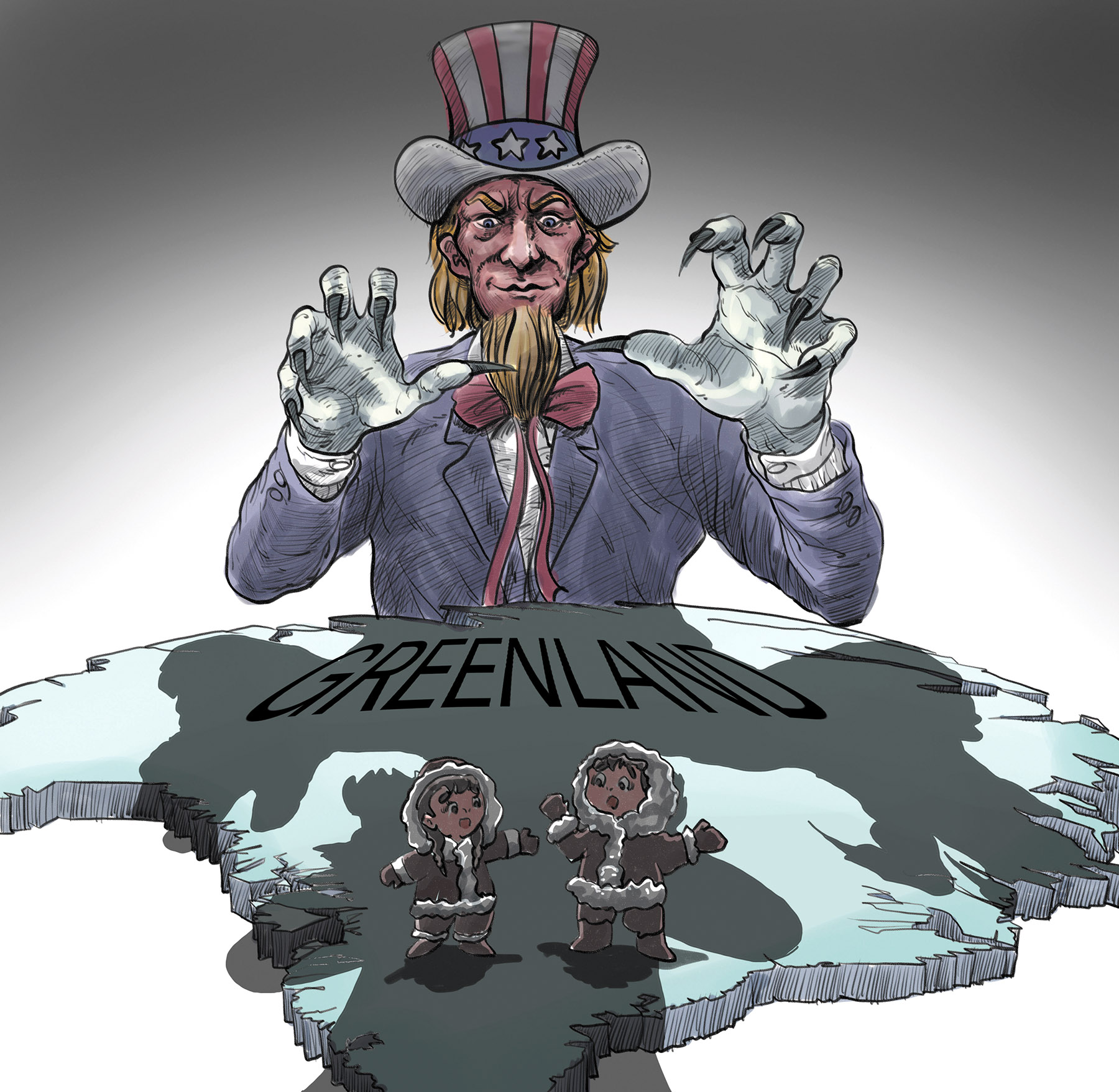Incoming US leader’s territorial ambitions go against international law and global principles

Donald Trump, the incoming US president, recently reiterated his eagerness to purchase Greenland from Denmark, without ruling out the possibility of taking the world’s largest island by military force. Such remarks shocked the world.
Why does Trump attach so much importance to the control of Greenland?
An autonomous territory of Denmark, Greenland has an area of more than 2 million square kilometers and a population of about 50,000, and is rich in oil and minerals. It is therefore possible that Trump wants the control of Greenland to use the island’s resources for the benefit of the US. In particular, the mineral resources.
Rare earths are a vital element for high-tech industries, such as electronics, electric vehicles and aerospace. As a leading science and technology power, the United States has a huge demand for rare earths which cannot be met by domestic supplies. Greenland has a considerable reserve of rare earths.
Also, if the high grade and huge reserves of iron ore in Greenland can be supplied to the US steel industry, the nation will see its leading industries increase their market share at lower costs.
Greenland’s natural landscape, including magnificent glaciers and fjords, and cultural resources such as the Inuit cultural and historical sites make it a great tourist destination. The development of the tourism sector will improve transportation, accommodation, catering and other services, helping strengthen the industry chain and raise employment.
A big concern over “Greenland’s purchase” is the geopolitical factor given the island’s strategic position — in a pivot area where the North Atlantic and the Arctic Ocean meet, and North America, Europe and Asia intersect.
In the 1940s, the US established the Thule Air Base, now known as Pituffik Space Base, on the Northwestern coast of Greenland near the Arctic Circle. The base remains important in US military deployment and strategic defense.
Control over Greenland will help the US strengthen its traditional alliance with European countries through the North Atlantic, more closely monitor Russia’s military movements, and consolidate its hegemony in North America.
Meanwhile, the Arctic ice is melting faster than ever due to climate change, increasing the possibility of new shipping routes opening up through the Arctic.
Domestic politics is another factor that may have prompted Trump to talk of “buying Greenland”, for it is consistent with his political slogan of “America first”.
Conservatives, arms dealers and mining companies that have economic interests and are interested in the US’ military power make up most of Trump’s constituency. By showing keen interest in Greenland, Trump is trying to enhance his political image by demonstrating his resolve to safeguard US economic interests and maintain its military superiority.
The international community has not welcomed Trump’s idea of purchasing Greenland. While Danish Prime Minister Mette Frederiksen has reiterated that Greenland is not for sale, Greenland residents also seem to have made it clear that the island is open for business but not for sale.
Many countries have expressed concern over the US president-elect’s statements, because such territorial ambitions violate international law and the governing principles of international relations, while triggering regional tensions. Worse, such remarks expose the self-centered and hegemonic mentality of US politicians.
If the US bolsters its military presence and spreads its influence in the Arctic region, China-US relations may undergo changes accordingly.
To begin with, it will intensify strategic competition between the two countries, because China is an important stakeholder in the development of resources and shipping, as well as environmental protection in the Arctic. Considering the tensions between China and the US, which Trump triggered during his first term as US president, Washington’s control over Greenland may limit China’s scientific research and resource development activities, and increase the risk of frictions and conflicts between the two sides.
The unabashed ambition of the US will prompt China to play a more active role in the Arctic region and step up efforts to establish a more just and reasonable Arctic governance mechanism. China could also strengthen cooperation with Russia, Canada, Iceland and other Arctic countries on issues such as climate change and environmental protection in the Arctic region, in order to safeguard its interests.
The US president-elect’s expansionist rhetoric will cause instability, and could backfire on him by inviting countermeasures from other countries.
The international community should work together to safeguard and improve the world order, and make it more just, reasonable and stable.
Wang Shangkun is a researcher at the Baize Institute for Strategic Studies, Southwest University of Political Science and Law; and Zhu Ying is a professor at the same institute.
The views do not necessarily reflect those of China Daily.



